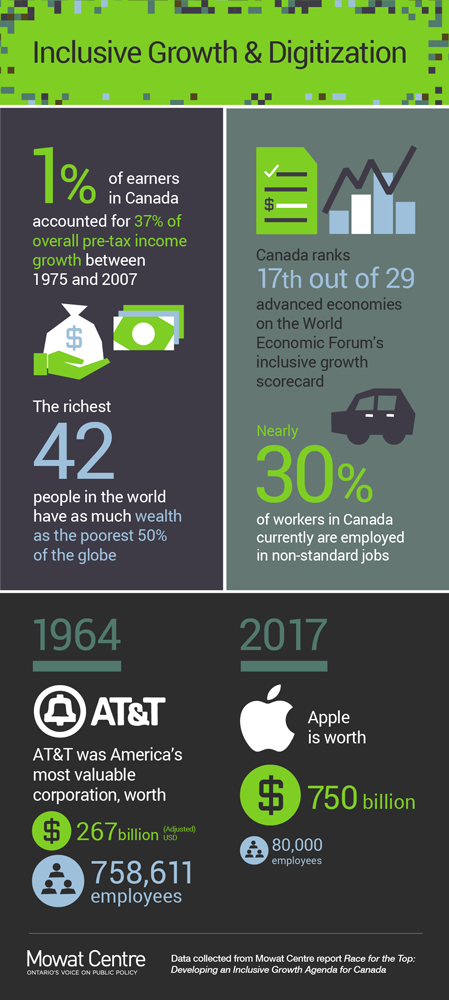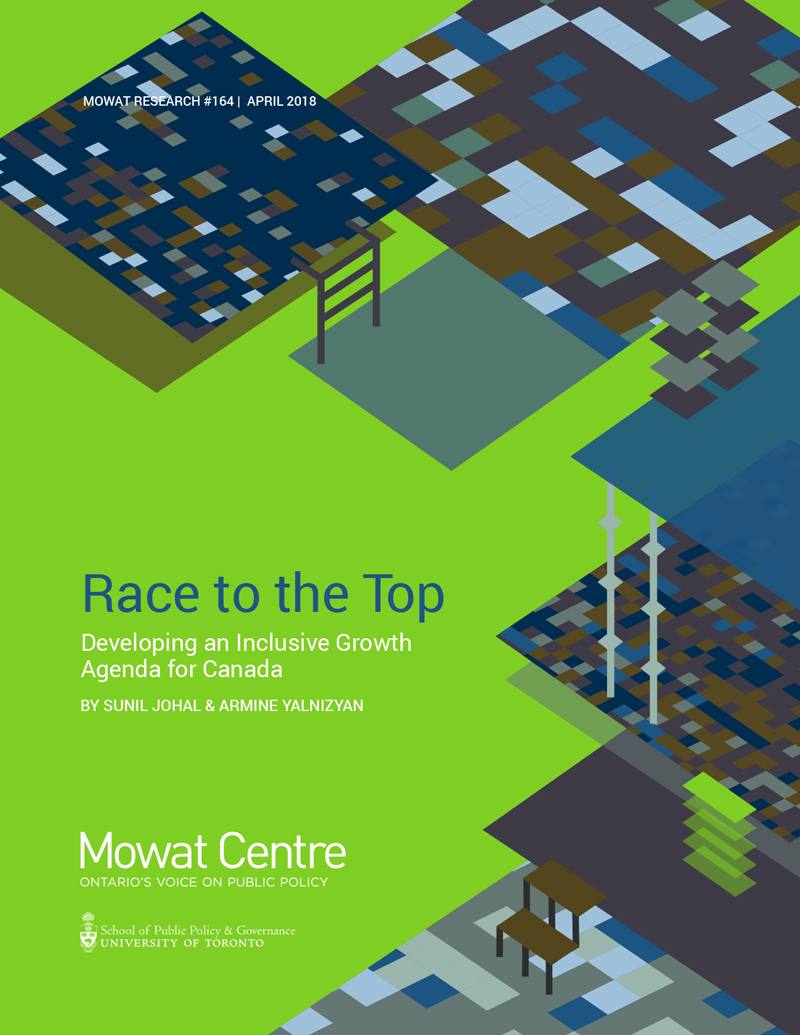April 25, 2018
Developing an Inclusive Growth Agenda for Canada
Governments around the world are coming to grips with the realization that growth needs to lead to more broadly-shared prosperity. There is a growing recognition that many of the benefits of globalization and free trade policies have not been broadly shared.
The report also finds that an inclusive growth path is particularly important for Canada. Canada is facing a prolonged period of little or no growth (“slowth”) with clear challenges related to income inequality, wage stagnation and a growth in precarious forms of work. Our analysis shows that reliance upon another commodity boom, export-led growth or further gains from increasing women’s employment is, for various reasons, unlikely to resolve these challenges. We explore a variety of options for shaping both how markets perform (pre-distribution) and how government policies are developed (redistribution), and provide specific recommendations to policymakers on developing an inclusive growth agenda for Canada.
Executive Summary
Governments around the world are coming to grips with the realization that the growth models they pursued for decades have not yielded broadly-shared prosperity for many of their citizens. A generalized tenor of disquiet about the future has arisen from the experiences of Brexit, a rise in populist sentiment in the United States and Europe, a growing recognition that many of the benefits of globalization and free trade policies have not been broadly shared, and the looming threat of trade wars.
Consequently, the conversation for policymakers has turned to “inclusive” growth. How can economic gains be shared more broadly and equitably throughout society? Disruptive technologies like artificial intelligence and peer-to-peer platforms pose tough new questions around how to manage disruption and the transition to an increasingly digital economy in a fair manner that generates well-paying, stable jobs. In our increasingly digital, global world, the competition for jobs and investment is growing more fierce. The most inclusive jurisdictions will be well-positioned to win the global war for talent and capital, and thrive.
For Canadian policymakers, the likelihood of a prolonged period of little or no growth (i.e., “slowth”) is significant. The path forward to a more inclusive model of growth is uncertain. We face clear challenges related to income inequality, wage stagnation and an increase in precarious employment. Reliance upon another commodity boom, export-led growth or further gains from increasing women’s employment are, for various reasons, unlikely to resolve these challenges in the future, as they have in the past.
This report seeks to provide guidance to policymakers looking to put Canada on a path towards more inclusive growth. It begins by assessing Canada’s record across a range of key metrics related to inclusive growth, ranging from income inequality to household incomes to the gender wage gap. It then explores a variety of options that can shape both how markets perform (pre-distribution) and how government policies are developed (redistribution), before concluding with specific recommendations on developing an inclusive growth agenda for Canada.
View PDFAuthors
Sunil Johal
Armine Yalnizyan
Release Date
April 25, 2018
ISBN
978-1-77259-064-7
Mowat Research
No. 164









